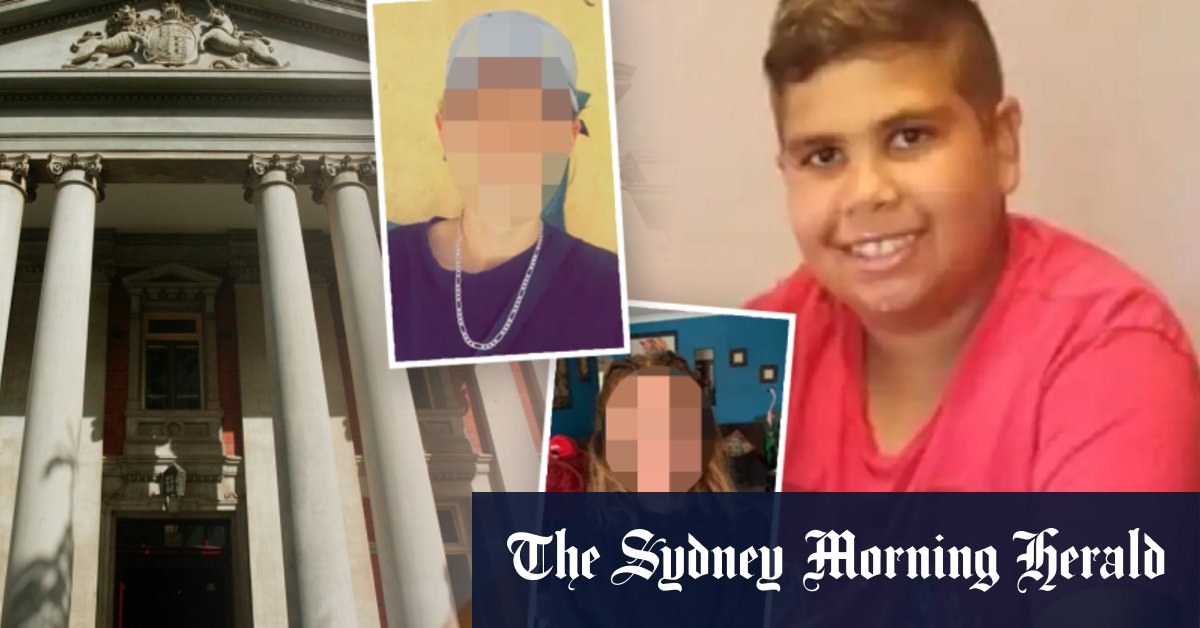Australia
Jack Brearley claims Cassius Turvey stabbed him first

The Tragic Death of Cassius Turvey and the Trial of Jack Brearley
The death of 15-year-old Indigenous schoolboy Cassius Turvey in October 2022 shocked the nation and sparked widespread outrage. Cassius, a promising young student from Perth, lost his life after being allegedly attacked in a creek in the suburb of Middle Swan. The case has been highly publicized due to its brutal nature and the racial undertones that have emerged throughout the investigation. Jack Brearley, now 23, stands accused of delivering the fatal blows to Cassius, but his legal team claims he is innocent and points to one of his co-accused as the actual perpetrator.
The Events Leading to Cassius’ Death
On October 13, 2022, Cassius was allegedly bashed with the metal handle of a shopping trolley during an altercation in Middle Swan. The attack left him with severe head injuries, including bleeding on the brain, which ultimately led to his death 10 days later. The prosecution alleges that Jack Brearley, along with his three co-accused—Aleesha Gilmore, Brodie Palmer, and Mitchell Forth—were involved in the attack. The group had reportedly been seeking revenge after Brearley’s car windows were smashed the day before. According to the prosecution, Brearley’s anger and intent to inflict harm were evident, and his co-accused are also charged with murder for their alleged awareness of his violent intentions.
The Prosecution’s Case Against Jack Brearley
During the first day of the trial, prosecutor Ben Stanwix outlined the state’s case against Jack Brearley, painting him as the primary aggressor. Stanwix told the jury that Brearley had chased a group of schoolchildren who had gotten off a bus in Middle Swan, believing they were there to fight his girlfriend’s younger brother or vandalize his home. The prosecution claims that Brearley caught up to Cassius, whom he referred to as “the fat one,” and delivered the fatal blows to his head. The prosecution’s case hinges on the idea that Brearley’s actions were premeditated and that his co-accused were complicit in his violent intentions.
The Defense’s Case: Brearley’s Innocence and Palmer’s Guilt
On the second day of the trial, Jack Brearley’s legal team, led by barrister Simon Watters, presented a vastly different account of events. Watters accused the state of having the wrong man and shifted the blame to Brodie Palmer, one of Brearley’s co-accused. The defense argued that Palmer was the one who had attacked Cassius with the trolley handle, causing the fatal injuries. Watters emphasized that Brearley had been waiting for two years to tell his side of the story, portraying him as a concerned community member who was only trying to protect his property and loved ones. The defense suggested that Brearley’s actions were driven by fear and a desire to prevent further harm, rather than a desire to inflict violence.
The Emotional Toll on Cassius’ Family and the Indigenous Community
Cassius Turvey’s death has had a profound impact on his family, friends, and the broader Indigenous community. The outpouring of grief and anger following his death has highlighted the deep-seated racial tensions and injustices faced by Indigenous Australians. Cassius’ family has demanded justice for their loved one, and the case has become a symbol of the systemic issues plaguing Indigenous communities. The trial has also sparked difficult conversations about racism, violence, and the need for greater accountability within the justice system.
The Broader Implications of the Trial
As the trial continues, the nation remains gripped by the details of Cassius Turvey’s tragic death and the legal battle unfolding in court. The case raises important questions about accountability, race, and justice in Australia. While the prosecution and defense present their opposing narratives, it is clear that this trial is about more than just determining guilt—it is about addressing the systemic issues that led to Cassius’ death and ensuring that justice is served. The outcome of the trial will not only impact the lives of those directly involved but also resonate deeply within the Indigenous community and beyond.











